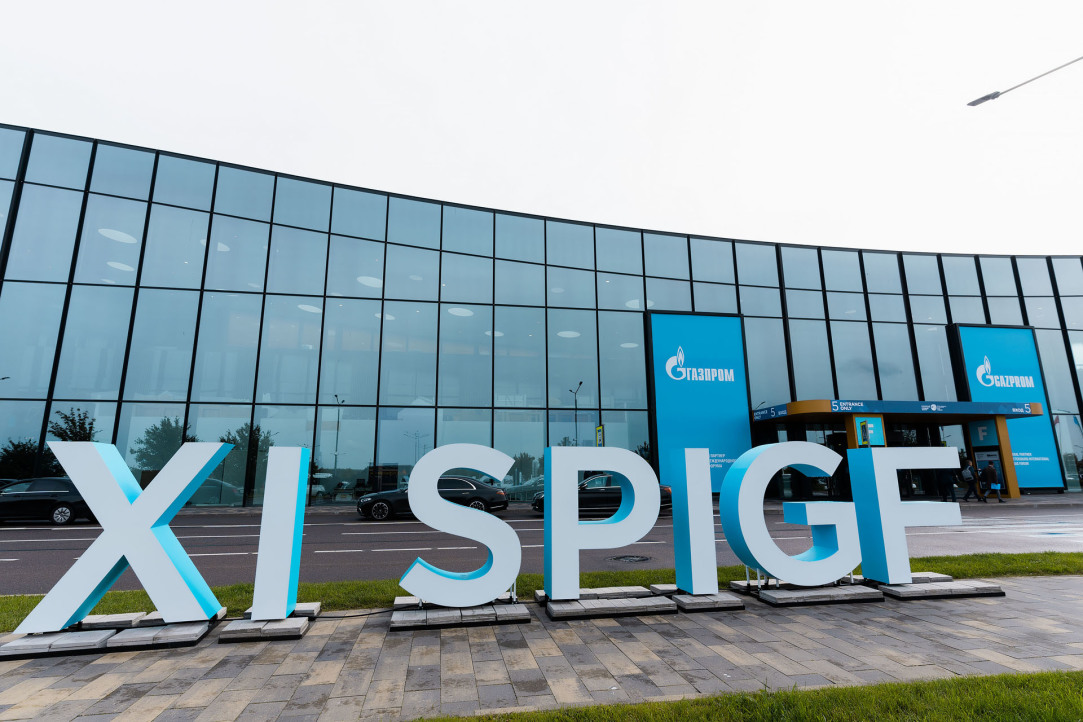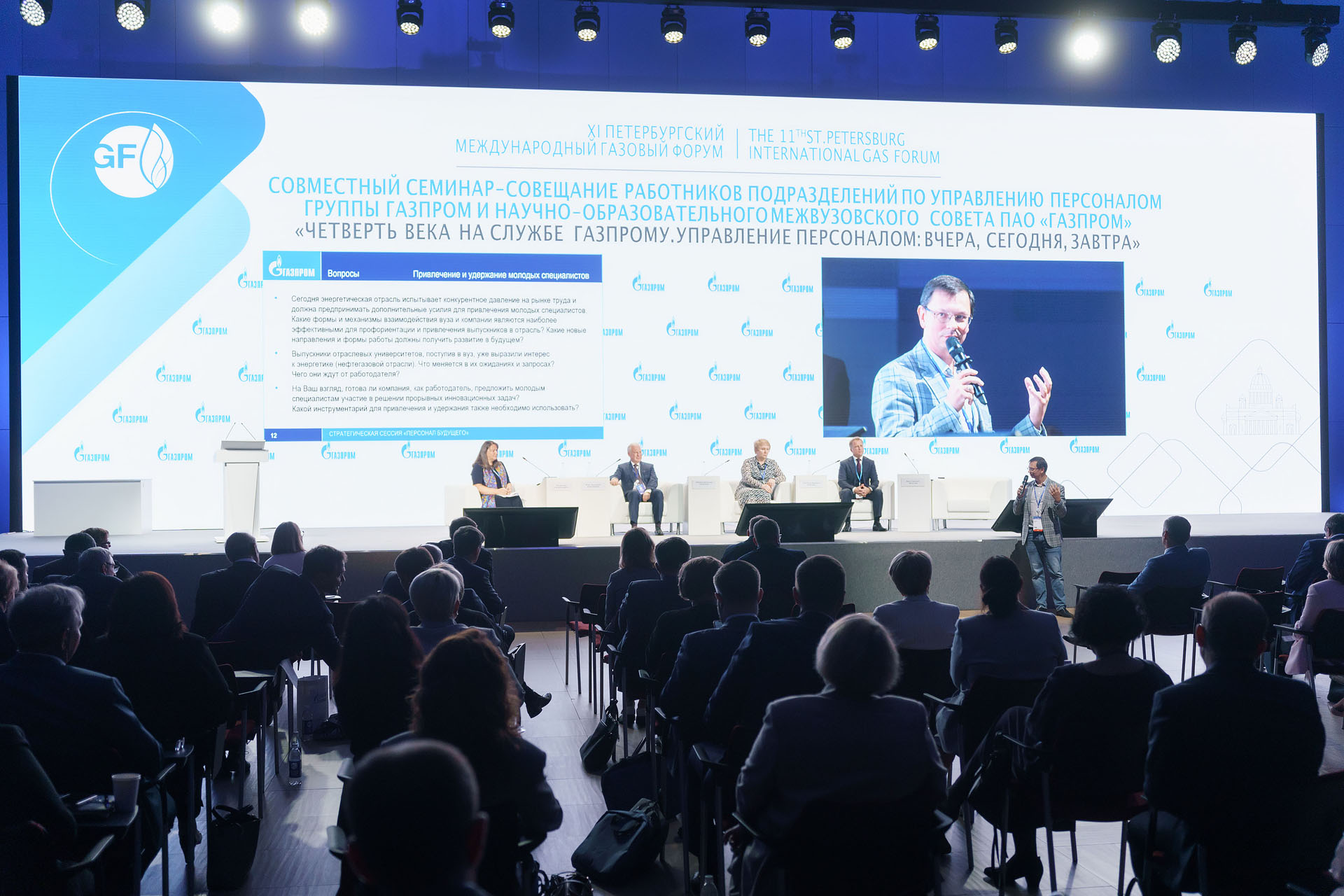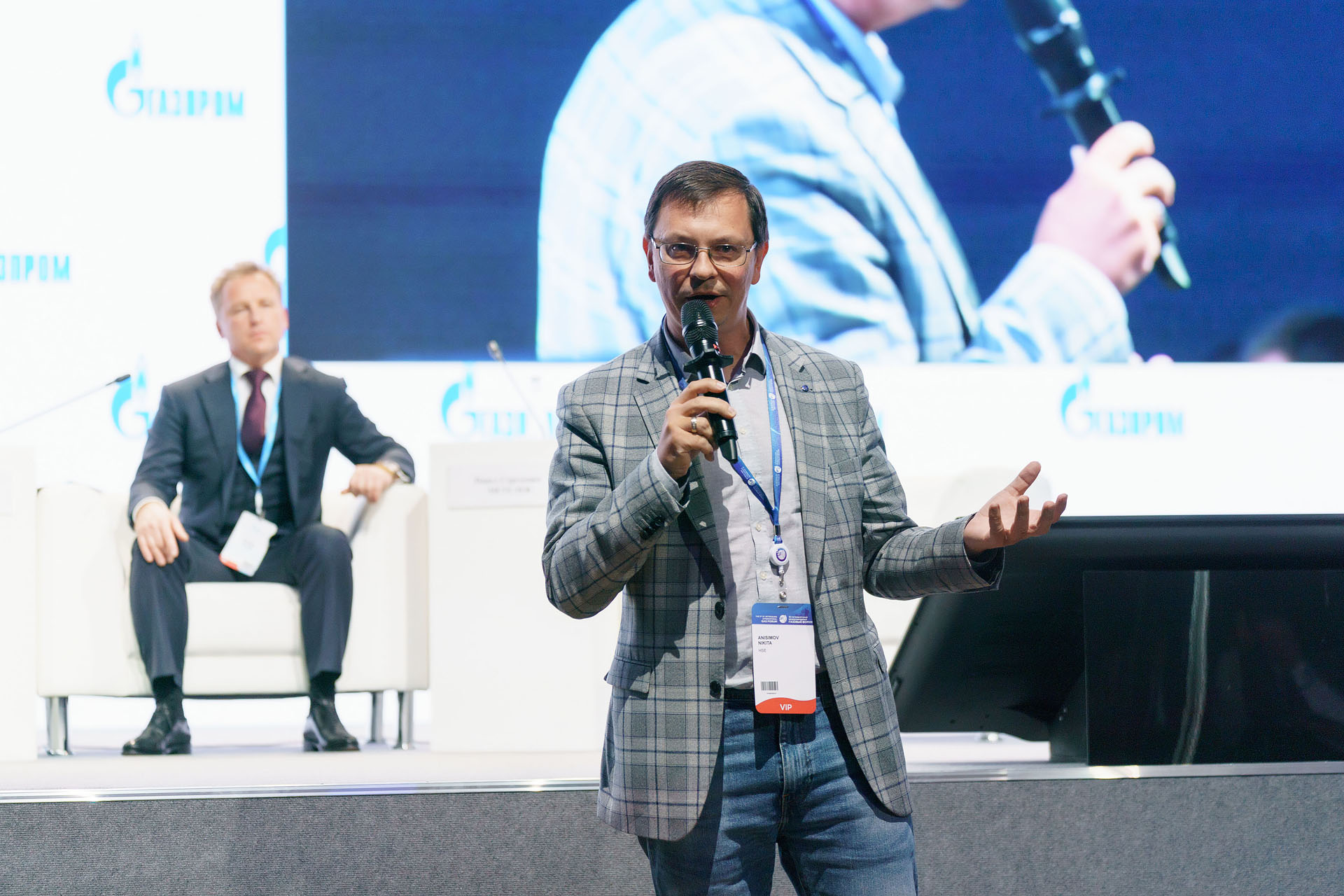SPIGF-2022: Education Partnership, Development of the Saint-Petersburg Agglomeration, Intellectual Projects

The strategic session 'Personnel of the Future' involving Nikita Anisimov, the Rector of HSE University, covered the successful partnerships of the universities and industrial companies in training the young professional in the field of Power Engineering. During the RBC roundtable with Alexander Khodachek, the President of HSE University-St Petersburg, the participants discussed the impact of the gas industry and its satellites on the development of the Saint-Petersburg agglomeration. At the exhibition of the flagship 'Gazprom' universities, the exhibition stand of HSE University presents the intellectual developments of research subdivisions at HSE University-Moscow and partnership project of 'Gazprom Neft' and Centre for Data Analysis and Machine Learning at HSE University-St Petersburg.
Educational industrial partnership

At the strategic session 'Personnel of the Future', the participants of the interactive discussions were both practitioners and the heads of the Russian leading universities, which train the professionals for the oil and gas industry.
What fields of knowledge will require the personnel training in the future? How to attract the youth to the industry? How to retain young professionals under the conditions of the labour market turbulence? Together, the experts tried to draft a plan of the most effective measures.
Andrey Rudskoi, Rector of the Peter the Great St. Petersburg Polytechnic University, named the key directions of the gas industry development and the professional training for the upcoming five-six years. They are ensuring technological independence, creating and implementing the highly effective national engineering equipment, developing the artificial intelligence technologies in the management of complex dynamic systems, and training highly professional managers.
Yuri Lebedev, General Director of Gazprom Pererabotka Blagoveshchensk LLC, drew attention to the new requirements, which the modern production imposes on the graduates, when at the intersection of disciplines, the new competencies appear, and new approach to the traditional professions.
Veronika Efremova, Rector of the Industrial University of Tyumen, believes that the joint work of the university and its industrial partner is very important. It helps to effectively use the career guidance as a tool for shaping the people who are potentially interested in the profession already at school and provides the university training of unique specialists adapted to the requirements of the partner, the industrial customer. 'Perhaps, in economic terms, it looks like expenditures, but we consider it to be investments', said Veronika Efremova.

Nikita Anisimov, Rector of HSE University, supported this idea in his speech. He singled out three levels of work on attracting and retaining the specialists: school, university and post-graduation, when the organisation seems to lose the influence on the specialist after the workday is done.
Nikita Anisimov
If we have repelled a child from Physics in the sixth grade, we lost an engineer. It is hard to reach the children in the sixth-seventh grades from the university. But if we do not want to lose those who could become brilliant engineers at that time, we should pay attention to the teaching, Physics teachers in particular, with the support of universities and the largest companies like 'Gazprom'.
At the university, it is important to involve the students in the research activities together with the company and for its tasks because such activities will give the added value to the product produced by the company. For instance, HSE University develops the research Master's-PhD track and pays the scholarships to the master's students at the level of a competitive salary. Such a mechanism is not accessible to all the universities’ budget, but the partnership with companies makes it possible.
The youth spends about nine hours a day using the gadgets, and we do not know what channels they watch, what computer games they play and how these resources influence them. Interaction with young people, including outside of regular office hours and through the entertainment resources, is the most important tool for the retaining the specialists in the engineering field. The creative industries, media communications play the essential role here. Their usage motivates people who work in the industry.
Growth points of the Saint-Petersburg agglomeration

'RBC Saint-Petersburg' organised an experimental panel discussion session on the influence of the oil and gas companies on Saint-Petersburg and Leningrad region, which gathered the representatives of different fields.
Elena Krom, moderator of the discussion, the Editor-in-Chief at 'RBC Petersburg', named the numbers which show the influence of the industry on the region: more than 300 billion RUB as the costs of goods and services purchased by the companies in the 'Gazprom' group within ten years, and seven flagship 'Gazprom' universities.
Andrey Piskunov, Managing Director of the rating agency 'National Credit Ratings', referred to the challenges of estimating the industry's input in the development of the territory because of its diversity and the necessity to collect and analyse a big amount of information: tax deductions, job creation, generating solvent demand from the staff members for the services and products produced by the regional business, infrastructure investment, charity projects and much more. He drew attention to the substantial multiplicative positive effect on the development of the regional economy.
Alexander Khodachek, President of HSE University-St Petersburg, presented the economist's perspective on the multiplicative effects of 'Gazprom's presence in the region. He said that the first impact of the large businesses’ arrival in the region was the house price growth in Vyborg and Primorsk due to the construction of 'Nord Stream — 1'. According to his subjective assessment, the region gets about 20-25% of its tax deductions from oil and gas companies and other related organisations. Discussing the development of the fields connected to the oil and gas industry, Alexander Khodachek highlighted the importance of geology and extraction of mineral resources. Besides, he supplemented the list of seven flagship universities with several secondary technical colleges, which train the personnel for mining and processing industries. He also mentioned creating new workplaces, building social facilities (swimming pools and gyms), developing recreation and business area around 'Lakhta Centre', producing clothes for the operating conditions of the North, creating teams for rotation work in Saint-Petersburg, staffing the processes of retraining middle-level and technical personnel, the logistical value of Oktyabrskaya Railway and its Murmansk and Petrozavodsk Railway Divisions.
As for the prospects, from Alexander Khodachek's point of view, 'taking into account the reduction of gas supplies to Europe to zero by 2027, we should expect the growth of domestic consumption'. 'We have to implement the degasification programme (by 2030 for another 10%, then the indices will reach 82,9%), replace, if necessary, the electric and liquefied gas heating with main gas, increase the production of various systems of gas equipment, organise the system of cadastral security for all the wiring, arrange the issues of training the personnel for the small and big companies. Besides, these are Saint-Petersburg and Leningrad region that have another unused reserve — gardening territories which are not privatised yet because they are not given the status of a territory for permanent residence', said the President of HSE University-St Petersburg. Besides, he underscored that 'as soon as the legislation will be amended, there will appear new areas for development': 'According to the zero readings of the budget, in 2023, revenues of Saint-Petersburg will be trillion RUB, and 'Gazprom' and its subsidiary companies play the key role in it'.
The discussion participants agreed that the agglomeration is extremely interested in developing the partnerships.
HSE University is a flagship 'Gazprom' university
As one of the flagship 'Gazprom' universities, HSE University participated in the exhibition which presented the educational and intellectual products of the industry at the SPIGF-2022.
The Moscow campus demonstrates the Big Data Analytics system 'iFORA' (Intelligent Foresight Analytics) which is developed in the HSE Institute for Statistical Studies and Economics of Knowledge. The system is able to extract the highly specialised data from extensive libraries of diversified documents, to systematise the disparate data, identify the trends, markets, technologies, events, organisations, key individuals, implicit links and regularities, provide the information for the strategic analytics and decision-making with the help of modern data visualisation tools.
The HSE Centre for Artificial Intelligence took part in the forum too. The centre presented the developments in the sphere of methods for identifying anomalies in production processes, computer vision for job monitoring and introduced the model of identifying the industrial emissions and predicting the emission movements in the atmosphere.
The Centre for Data Analysis and Machine Learning at HSE University-St Petersburg presented the project 'Optimisation of development scenarios for the placement of the new fund and borehole drilling with the help of a machine learning algorithm with reinforcement' for the irregular grid of wells. This project was implemented in partnership with the Science and Technology Centre of 'Gazprom Neft' PJSC in 2021-2022. It is a research project: the participants developed the method based on a machine learning algorithm with reinforcement (one of the ways of learning neural networks) which showed the effectiveness comparable to the expert one. This method was tested on the synthetic data. The next step is to adjust it to the real company data. Oleg Svidchenko, the research assistant of the centre and the participant of the project team, presented the project.
In the morning, on September 15, Sergey Khomyakov, the Deputy Chairman of the board of 'Gazprom' PJSC, attended the exhibition of the partner-universities. Together with the organisers, he walked around the whole exhibition. Leonid Gokhberg, the First Vice Rector, represented Higher School of Economics.

